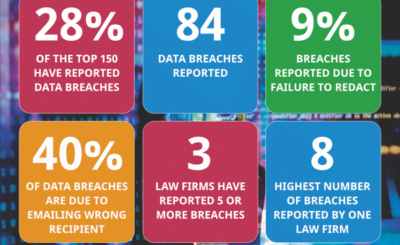Marketing for Lawyers: #2 Search Engine Optimisation

 So, your website is up and running. Assuming it is optimised for your potential clients’ needs (see Optimising your home page), enquiries will follow?
So, your website is up and running. Assuming it is optimised for your potential clients’ needs (see Optimising your home page), enquiries will follow?
Unfortunately, it’s no longer enough to publish your site and hope for the best. There are now more than 1 billion websites out there and, if you are to get your site noticed, SEO for law firms is a must.
What is SEO?
Search engine optimisation is a methodology for placing your website near the top of the search engine rankings. When a potential client Googles a common phrase such as conveyancing, you are attempting to place your site as near as possible to the top of the list.
When you search for something in Google, you discover that the first three or four entries at the top (and bottom) of the page have a green Ad box next to them. These are paid for positions. The results below these are free and are there because the listed websites most accurately reflect the search you entered. These are known as organic results.
The first three organic listings will attract in excess of 95% of click-throughs. The one in first position will attract more than 50%. So, you can see how important it is to try to get the highest position.
How to get the best results.
Achieving a position in the top three organic places can take some work. The algorithms Google uses to determine a website’s position change frequently but are largely based upon relevance, site quality, mobile friendliness, site content, links to your site and the frequency with which you update the site. Site content means both visible and invisible content.
Here is a simple checklist to help you achieve higher rankings.
SEO Title.
This is one of the many hidden components of the page. It is one of the meta tags embedded in the page’s code and is used to provide the title of the listing. For LawWare’s site, you can see it in the example below.
LawWare: Legal Software | Legal Practice Management Software
lawware.co.uk/
LawWare – integrated accounting and practice management software for UK law firms. Server and cloud based solutions for solicitors
For your SEO page title, Google only allows you 70 characters, including spaces. So, try to make the title as clear and concise as you can. You should populate the title with key words and phrases that are most frequently used to search for your services. Don’t forget that it’s not just the homepage that counts. Each page on your site should have an SEO title and these can vary from page to page to reflect your differing service offerings.
Meta Description.
More jargon! The meta description is another piece of embedded code. As you would expect, it provides the description that you can see in the final line of the LawWare example below.
LawWare: Legal Software | Legal Practice Management Software
lawware.co.uk/
LawWare – integrated accounting and practice management software for UK law firms. Server and cloud based solutions for solicitors
The meta description is restricted to 156 characters. So, again, choose your words carefully and try to ensure that they include key search terms that your prospective clients are likely to use. If your practice specialises in conveyancing is that the correct term that someone trying to buy or sell their property would use?
Content.
It doesn’t stop there. Google takes into account the keywords used in your meta tags and checks to see that they are relevant to the content on the page itself. Include relevant words and phrases that you wish to be known for in the body of the text. These should be a reflection of and an expansion upon the keywords you used for the meta tags. To achieve better results, make sure the main keyword is:
- contained in at least one of the headings you use in your text
- contained in the very first paragraph of text on the page.
Google loves relevance. So, adopting these simple tactics will get your site noticed and improve your ranking.
Regularly update content.
It’s not sufficient just to create static content for your site when it’s first setup. This is a common mistake made by many web developers who are trying to achieve good search engine rankings. I’m not for a minute suggesting you change your home page and key landing pages every few weeks! However, this is where having a blog on your website really comes into its own. Google’s mysterious algorithms give more status to sites where content is added on a regular basis. A blog will allow you to achieve this and also publish news and other materials that are relevant to your prospective clients. It’s one of the key reasons why I’m writing this blog post now.
I could go on about blogging for a long time but shall resist the temptation. I’ll return to blogging in a separate article in this series.
Links.
Links to your site are another means of gaining respect from Google. Try to get other sites that carry a certain kudos to mention your site and link to it. You could start by setting up your own Twitter and Facebook pages with links to your site. Local and professional organisations are another good source.
A good example…
Do a Google search on your practice by keyword. For example: if you are a small or medium-sized practice in say Middleton, Manchester, type in solicitors Middleton Manchester (using your own location) and see what results you get.
If you are not listed, you really need to take action. As a colleague of mine once said:
“…if you are not listed on page one of Google, other than the signage on your office front, you don’t exist…”
A stark comment but, in this day and age, one which is very close to the truth.
OK, OK, so this all sounds confusing…
 It’s not rocket science but it’s no stroll in the park either. Adding all the tags and titles, the content, the links and the blogs may appear a little daunting if your practice has handed you the web management role.
It’s not rocket science but it’s no stroll in the park either. Adding all the tags and titles, the content, the links and the blogs may appear a little daunting if your practice has handed you the web management role.
If that is the case, there are plenty of good web design and SEO companies around that can assist – and it needn’t cost the Earth.
Basic SEO should come as part and parcel of your initial web design. Beyond that, to improve your search engine ranking, there are other alternatives available such as AdWords and other forms of pay-per-click marketing. More about that in a later article.
Mike O’Donnell, January 2017.
Mike O’Donnell is an experienced marketing professional who has spent much of his career working in and advising the legal profession. For further biographical details click this link.








Recent Comments